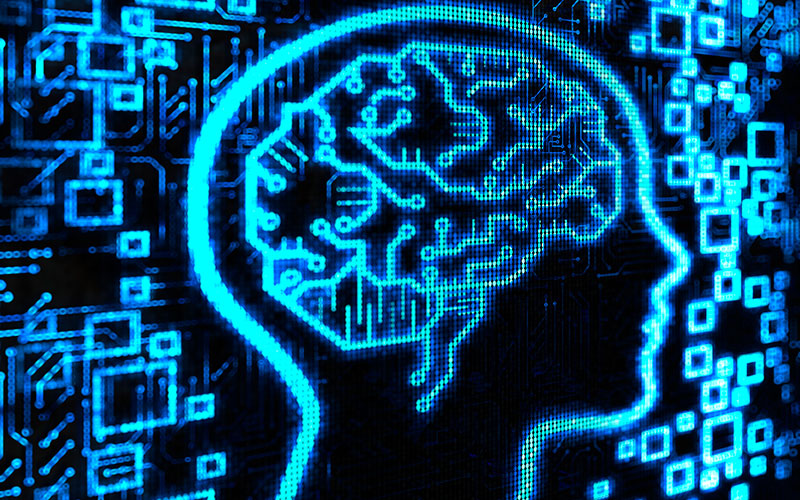- Home
- Growth Hormone
- Growth Hormone
- Growth Hormone Deficiency
- Growth Hormone Therapy
- Growth Hormone Injections
get startedThe Most Effective Hormone Replacement TherapiesHuman Growth Hormone’s Impact on Mood and Cognitive Functions
Among the many benefits of human growth hormone (HGH) are its positive impacts on moods, memory, and cognition.
Human growth hormone, or HGH, is among your body’s most important hormones. Like all hormones, HGH is a chemical messenger that interacts with specialized receptor sites in your body, stimulating and controlling many processes, from bone and muscle growth to regulating sleep, to healing, and more.
However, as important as HGH is to health and wellbeing, unfortunately, your level of HGH declines with age. Over time, this decline in HGH levels in the blood has a negative impact on your health, which includes impacts on your emotional states and cognitive abilities such as
- Mood swings and an increased occurrence of depression and anxiety.
- Memory loss and a decrease in your ability to focus and complete complex cognitive tasks.
Growth hormone replacement therapy has been shown to lessen mood swings and improve memory and cognitive abilities.
Benefits of HGH for Cognitive Abilities
There is a definite link between HGH and brain functions. This is because your HGH level is intimately related to the chemicals that regulate brain activities known as neurotransmitters. Neurotransmitters are brain chemicals such as serotonin and dopamine that regulate mood, cognition, and other brain functions. They primarily use neurons to transmit their signals across the nervous system.
Some of the most important neurotransmitters are dopamine and serotonin. Both of these chemicals are intimately related to memory and cognitive abilities. HGH is essential in the production and release of these and other brain chemicals.
Recent studies have shown that HGH therapy has been helpful in returning cognitive function to stroke victims. These studies indicate that growth hormone treatment, when used together with rehabilitation programs, can promote a positive outcome for brain injury and stroke patients.
HGH and Memory
There have been several recent studies that show a link between HGH levels and brain function, particularly in the areas of cognition, memory, and emotional states.
Researchers with the Mount Sinai School of Medicine in New York City were able to definitively illustrate a relationship between growth hormone therapy and improvements of memory in rats.
The scientists devised a task that would test the memories of the mice in the experiments. They used a box that was lit on one side and unlit on the other. Rats that entered the dark side got a mild foot shock. The rats’ subsequent hesitation to return to the dark after getting shocked gave the scientists a measure of how well they remembered the traumatic event.
Interestingly enough, the scientists documented that as the rats were shocked, their levels of naturally occurring growth hormone spiked. The rats retained the memory of the unpleasant experience for quite some time, being afraid to go into the dark side of the box for weeks after the initial shock.
Then the scientists wanted to see what would happen if they artificially increased the growth hormone levels of some of the mice in the study. They injected additional growth hormone into the brains of the mice at various intervals during the box training, such as immediately after a shock or more than a day later. The researcher said that the HGH injections enhanced their recall dramatically. "Their hesitation, or latency, more than doubled," said Cristina Alberini, lead researcher on the project. "It’s a very potent effect."
Other studies have shown similar improvements in memory in humans who have received growth hormone injections. A 2010 study looking at the impact of HGH decline on memory in adults concluded, “Growth hormone deficiency (GHD) results in spatial memory impairment in midlife – and is prevented by HGH supplementation.”
Anecdotally we see improved memory as a benefit of HGH in our patients on growth hormone therapy all of the time.
The Brain Boosting Benefits of HGH
Why does HGH improve memory and cognition? Apparently, HGH helps repair damaged brain tissue and aids in the ability to produce proteins in the brain used for storing memories. After eight to twelve weeks of taking HGH injections, patients report improvements in mental alertness, motivation, and memory.
A recent study published in the Archives of Neurology demonstrated an improvement in cognitive function in older adults with mild cognitive impairment (MCI). This study is one of the many that show a definitive link between growth hormone replacement therapy and improvements in memory.
HGH can improve cognition and help to prevent memory loss.
Impact of Low HGH on Emotional Health
Age-related decline of growth hormones has a negative impact on your emotional health, not the least of which can be an increase in feelings of stress, anxiety, and depression.
In addition to having a positive effect on memory and possibly delaying dementia, HGH also impacts other brain functions such as emotional wellbeing. Adults with age-related growth hormone deficiency tend to have mood swings and are more prone to depression and anxiety. This seems to be due to the relationship that HGH has to the production and release of neurotransmitters – the brain’s so-called “feel good” chemicals – such as dopamine and serotonin.
In addition, people with low levels of HGH are often tired from lack of sleep. A poorly functioning metabolism does not provide enough energy to the body’s cells. Instead, the food consumed turns into stored fat. Weight gain is likely. All of these things can lead to feelings of anxiety and depression.
How Does HGH Help to Regulate Moods?
Sometimes people who are irritable or in a bad mood are said to be "hormonal." While that is usually meant as a bit of a derogatory expression, particularly when it is used to describe women at "that time of the month," there is a lot of truth in the statement. Hormones, and the delicate balances between them, do have a profound effect on emotional states such as anxiety and depression.
HGH injections not only raise the levels of HGH in your body, which in and of itself has a direct impact on mood, memory, and cognition, HGH therapy is designed to bring all of your critical hormones back into balance, which helps to stabilize moods. HGH injections can also help to regulate moods and combat depression by:
- Helping you to get adequate sleep.
- Reducing your levels of cortisol.
- Improving your ability to exercise. Endorphins are released during exercise.
- Helping you to lose weight, look younger and more fit, which helps you to feel better about yourself.
It is abundantly clear that growth hormone replacement therapy is as important for the mental and emotional wellbeing of older adults as it is for their strength, energy, and physical fitness.
Is There a Connection Between Low HGH and Anxiety and Depression?
In people with a growth hormone deficiency, particularly in patients suffering from age-related growth hormone decline, the brain’s receptor cells are not getting enough HGH. When that happens, anxiety, stress, depression, and irritability often occur.
HGH replacement therapy can improve mood.
Can HGH Therapy Reduce Feelings of Anxiety and Depression?
As stated earlier, the connection between HGH therapy, mental health, and emotional wellbeing begins with HGH’s ability to increase dopamine, serotonin, and other endorphin levels. Dopamine helps protect against feelings of anxiety and stress. Endorphins and serotonin act as antidepressants. In fact, you may have heard of common antidepressant drugs referred to as "SSRIs." SSRI stands for "selective serotonin reuptake inhibitors."
This means the way that these drugs work is that they inhibit your body’s ability to absorb (reuptake) serotonin, so your brain cells remain bathed in the chemical for longer periods of time, and you feel "good" rather than anxious or depressed. HGH injections can have the same effect without the side effects and controversy surrounding the use of SSRIs.
HGH replacement therapy has been shown to have a positive impact on decreasing feelings of anxiety and depression. HGH therapy also helps to improve mental states overall.
The brain has more HGH receptors within it than any other part of your body. Your brain is designed to be bathed in HGH, and HGH influences all manner of mental functions, from memory to mood. When your HGH levels are low, these receptors are starved of HGH, which can have dire effects on mental and emotional wellbeing.
HGH is essential to all higher brain functions and emotional wellbeing.
Now that you know a bit more about how HGH impacts moods and cognition, why not contact us today and find out more about growth hormone therapy.
- Growth Hormone Therapy



























